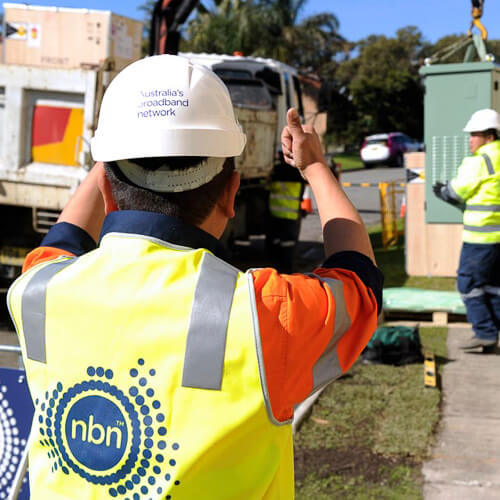The Australian competition regulator hauls the three biggest telcos to court for allegedly making misleading claims on broadband speeds - but they blame NBN.

The Australian competition regulator has hauled the three biggest telcos to court for allegedly making misleading claims on broadband speeds.
The Australian Competition and Consumer Commission (ACCC) has filed separate suits against Telstra, Optus and TPG for making "false or misleading representations in their promotions of some 50Mbps and 100Mbps NBN plans."
ACCC Chair Rod Sims said in a statement Monday the three had promised to provide customers with a cheaper plan and give a refund if the service did not deliver the promised throughput.
Figure 1:  Blame game: Who is actually responsible for subpar broadband speeds in Australia?
Blame game: Who is actually responsible for subpar broadband speeds in Australia?
(Source: NBN Co)
"[T]hey failed to do these things, and as a result many consumers paid more for their NBN plans than they needed to," he said.
He alleged "hundreds of thousands of consumers" had been affected by promises of Internet bandwidth that could not be met.
The three operators were "well aware of these issues and had earlier given undertakings to the ACCC" to provide remedies to consumers whose NBN plans did not reach the speeds promised, he said.
Instead Telstra, Optus and TPG had accepted payments for NBN speeds they could not provide.
Pointing the finger
In response, Telstra and Optus pointed fingers at wholesale network operator NBN Co.
Michael Ackland, Telstra group executive, consumer and small business, said that when moving to the NBN for the first time the speed available is unknown to both NBN Co and the retail service provider (RSP).
"In most cases, if NBN Co sells an RSP a connection that fails to deliver the speed the customer wants, and the RSP has paid for, the RSP is left to wear it," he told the Australian Broadcasting Corp (ABC).
He said the company accepted there were "some things that we didn't do right" and apologized to customers.
An Optus spokesperson told the ABC that NBN's network delivered at varying speeds because of the uneven quality of the copper access network connections.
But Sims said the telcos could test broadband connections after they had signed customers up to determine the actual speeds.
Want to know more about optical? Check out our dedicated optical channel here on Light Reading.
This was one of the undertakings they had made to the regulator after it set the rules on how NBN should be promoted in 2017.
"We are very disappointed that these companies do not seem to have taken seriously the undertakings they gave to the ACCC."
The court action is the latest in a series of skirmishes between the ACCC and the big ISPs over accuracy of NBN promotions.
In 2017, after all three telcos had been caught selling NBN plans that shortchanged customers, they each promised to test network speed levels and to compensate consumers if they did not meet the level they were paying for.
The ACCC has since taken legal action three times against Optus and once against Telstra over other misleading promotions.
NBN Co did not respond to a request for comment.
Related posts:
— Robert Clark, contributing editor, special to Light Reading
Read more about:
AsiaAbout the Author(s)
You May Also Like











